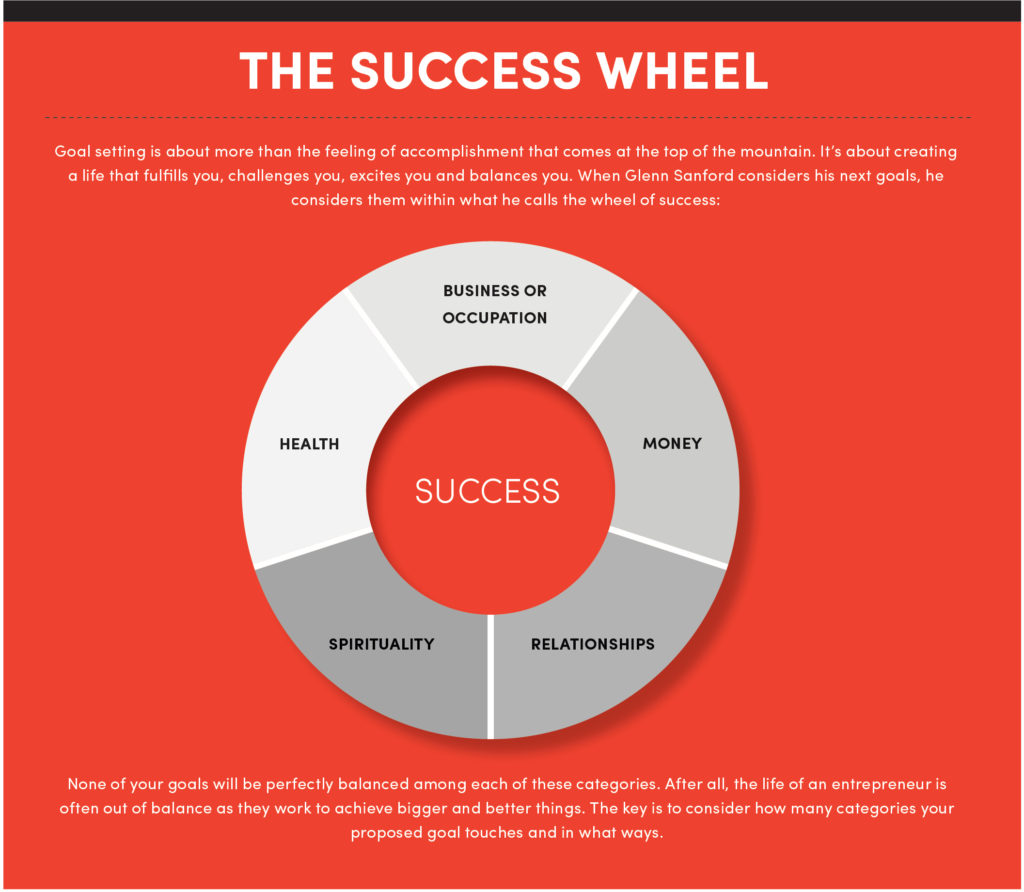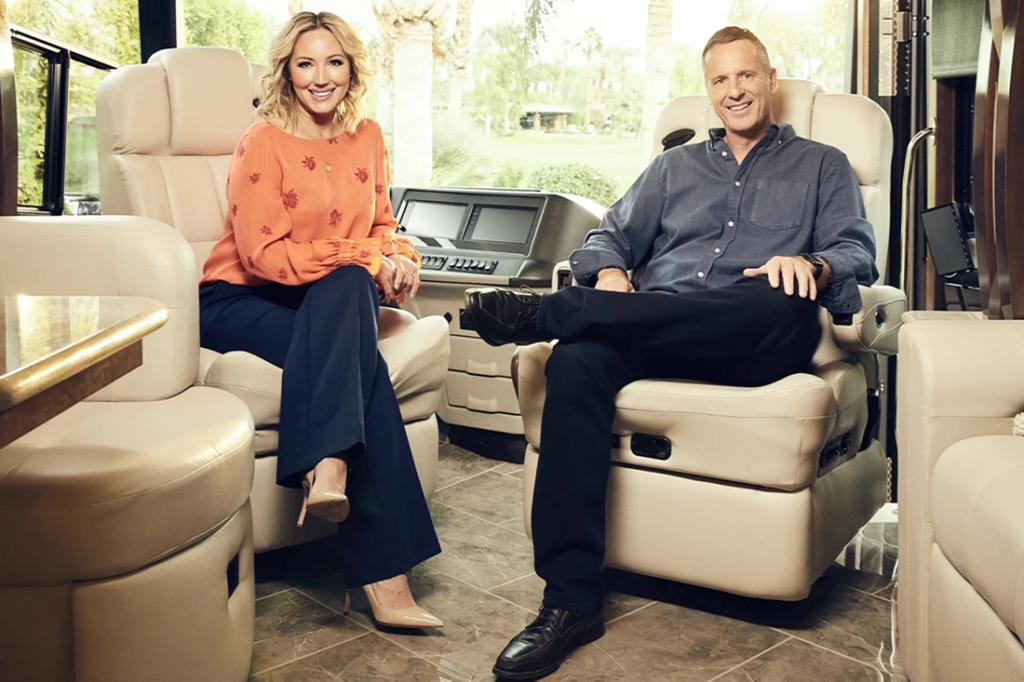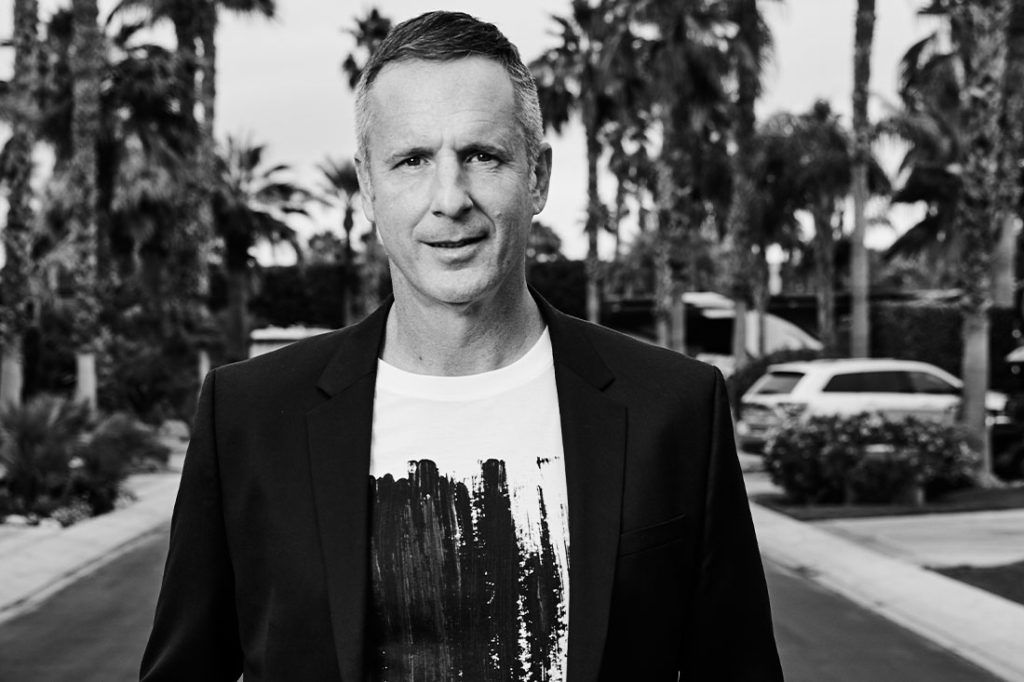Editor’s Note: As SUCCESS celebrates 125 years as a magazine, we take the time to reflect and honor the history of the publication and its timeless principles.
We also look to celebrate those who will walk with us into the future and all the promises it holds.
In this special Q&A, SUCCESS Stories podcast host Madison Pieper sits down with Glenn Sanford, SUCCESS CEO, to hear from the serial entrepreneur about what it means to be part of such a storied brand, and what readers can expect in years to come.
You’ll also hear from Sanford on the underrated power of consistency, and how his level of unbridled commitment to the next right step was crucial to his success.
This Q&A has been edited for clarity and space considerations. To view the interview in its entirety, join our social network, The SUCCESS Community.
Madison Pieper: You are the CEO of eXp World Holdings, the CEO of Virbela and the CEO of SUCCESS—with the level of attention it requires to run your various business ventures, what does consistency look like for you?
Glenn Sanford: Consistency allows people around you to understand how you show up and how you operate, and that makes it easier for people to engage with you as a leader, as an entrepreneur, in a way that’s mutually productive. One of the big ways to do that is just being consistent with what you do, how accessible you are, how people connect with you, the messages you share. That creates a recurring theme that allows people to put you in a box, but it can be a good box in that sense.
If I’m the leader, I look at how people are responding: What’s the net promoter score around whatever the product or service is? How are we regrouping? A lot of times organizations will use a quarterly cadence to regroup. We’ll make the commitments at the beginning of the quarter to work on things, but toward the end of the quarter, there’s a tendency to get complacent. And so in business, creating a regular cadence—quarterly, weekly—that people can trust helps set up for the next sprint.
MP: Adaptability is crucial in business. How do consistency and adaptability complement each other?
GS: Adaptability tends to be a thing you need to look at on a fairly regular basis. You might call it innovation: Are you innovating, or are you standing still? What are your big aspirational goals? And are you actually moving toward them? Adaptability is really to measure how far off course you are at some interval.
You may review quarterly and go, “Hey, this was our goal here. We ended up over here. What do we need to do to correct?” That’s where you adapt the plan and where you become agile. It’s about recognizing that not all decisions are good decisions, and it’s part of the fail-forward process that ultimately gets your product or service to gain market share, gain acceptance, and solve the issue you have at hand.
So adaptability is really just making sure that what you’re doing still makes sense, according to the original plan, or deciding that the plan actually needs to be adjusted. And you can adapt to meet your goals, but you can also adapt your goals.
MP: How do you find motivation between goals—when you’ve reached a goal and there’s yet another one in the pipeline.
GS: I think a lot of entrepreneurs struggle with that in-between stage. I find myself in the same mode, which is, Wow, I’ve just achieved something I’ve never thought was achievable. I could just coast now for the rest of my life.
Coasting doesn’t serve anybody, and it doesn’t serve our bigger purpose, but that doesn’t mean you can’t coast from time to time—we call them vacations. Some people use sabbaticals, where you might hang things up for now to go work on yourself so you can come back and do it again.
The idea is that, ultimately, you want to keep on figuring out ways to challenge yourself and to make a bigger impact. Making a bigger impact also carries additional risk—reputational risk, financial risk—and I think that’s one of the reasons why coasting is so interesting to people once they’ve made it. They sit and consider, Well, should I just play the safe game now? Or should I go for it again?
For me, it’s something that I work on, because from time to time, I’ll sit there and think, I’ve hit goals I didn’t ever think I would hit, and then, What should be my next goal?
MP: That’s great for the big, North Star goals, but what about smaller goals? How do you practice goal setting in your everyday life?
GS: It depends on how you define those smaller goals. I think a lot of times, if you’re really working on your bigger goals, you get the smaller goals by default.
One of the benefits of thinking bigger is that if you do that, you can think about all the things that will come along with it. Maybe you want to run a 5K and you’re not a runner. Well, maybe you train to run a half marathon. You’re going to have to be able to run a 5K in order to run a half marathon, so you start to think about, what’s the gamification you can do on yourself to automatically create the outcome you’re looking for by simply playing a bigger game?

MP: Shoot for the stars, land on the moon.
GS: Exactly.
MP: That said, do you believe in setting realistic goals or do you think it’s OK to dream as an entrepreneur once in a while?
GS: You have to believe you can actually achieve the goals you set, because if you don’t, then at some point you’re going to go, Why the heck am I even trying? The whole idea of good goal setting is to set them just out of reach but not out of sight—meaning that if you can see them, you can get there.
The flip side of it is, if you don’t believe you can do it, but you’re interested in the space, then become a student of whatever business or industry or subject you’re interested in until you find that thing that really sparks an interest for you.

MP: Do entrepreneurs ever graduate from being students?
GS: I think by definition, entrepreneurs are always trying something new, whether that’s creating a new category of business or launching a new product or service. Certainly, you could be an entrepreneur and be pulling together a whole bunch of franchises, too, thinking about how to organize those from a management perspective. But there’s a fundamental learning that’s going on all the time.
For me, that’s probably been one of my strong suits. I’ve really taken to listening to books, reading, trying to be around other successful people as something I’m actively engaged in, and it worked. I’ve been able to find things I can incorporate into the business that could actually take us to the next level faster. As an entrepreneur, you have to be focused on internal process improvements.
You also have to focus on how to articulate your product or service to the marketplace in a way that allows you to set yourself apart. What’s your truly unique selling proposition? A lot of times you don’t figure it out unless you study other people who have come before you and who have come up with unique products and services and unique ways of doing things.
Learning is something you just have to continually do. And then from there, you’re going to pass that information onto the next generation of leaders, or the people you are influencing to help them level up. I’ve found that entrepreneurs are two things: They’re continually learning, but they’re also continually implementing.
MP: There’s entrepreneurs, and then there’s serial entrepreneurs such as you. How do you maintain consistent strategies and practices throughout each of your businesses when they all have such different goals?
GS: eXp Realty is 70,000-plus agents and brokers in 18 plus countries, and it’s the fastest-growing real estate company in the history of residential real estate. I really understood that I did every function in that business. Then we bought other companies like Virbela and SUCCESS, and what I’ve found is there’s different operating styles in each business. Every business has its own nuances and its own history, so we have to figure out how to take the things that work for us in one company and work it into another company—whether it’s, how do we organize? How do we retool? How do we create a cadence around different stuff? It’s not an overnight thing.
And then the question really is what ultimately are we trying to achieve in those businesses? I think eXp has a unique business in that we really answered a need for real estate professionals. I think on the Virbela front, we’ve solved for, how do you run large organizations using a virtual world for business platform? And then SUCCESS, how do we think bigger? And then how do we get people all in on the next iteration? I think that’s the thing that I keep coming back to, is how do we create another big hairy audacious goal for different companies with rich histories when they come into our ecosystem?
MP: Speaking of SUCCESS, this is a really big year for the magazine: its 125th anniversary. What does it mean for you to be a part of that legacy?
GS: It’s very surreal. I’ve been reading SUCCESS since the ’80s. I’ve picked it up and subscribed to it at different times in my life. Reading about entrepreneurs—about what they tried, what worked, what didn’t work—that was the thing that always got me thinking about another idea. That’s the goal: I should be able to pick up the magazine, thumb through it and find two or three different things I can implement into my life, into my business, into the way that I interact with people, and that will take me to the next level.
That’s what SUCCESS has done for me so many times over the years. It has added to my ability to think in a way that helped me create a company that is now a multibillion-dollar enterprise. So it’s really an honor to be on the cover, and it’s a privilege to be in a role where I’m able to add some influence on the magazine for a period of time.
MP: What does the future of SUCCESS look like for you?
GS: One of the things we recognized when we bought SUCCESS was that this was a brand that needed to expand. We’ve got a magazine, we’ve got digital, and we’ve got courses, but we saw the opportunity to introduce things like SUCCESS Coaching and SUCCESS Speakers Bureau, too. So if somebody is looking for a person to help them level up their thinking in their organization, we can do that. We’ve also got a coworking concept—SUCCESS Space—where you’re able to bring SUCCESS into your local community and share it with other people like you who are looking to go to the next level.
MP: As the CEO and cover of SUCCESS, what do you want our readers to learn the most from you?
GS: If you can believe it, you can achieve it. I think that’s really what it comes down to. You look at Elon Musk—he believed that he could build the electric car, that’s why he invested in and built up Tesla. He did the same thing with SpaceX. You look at Jeff Bezos—he believed that he was going to be able to take advantage of a trend in e-commerce on the internet. I think what you can see from all the people who have been there, is this: They all, at one point in time, thought they could do something now. They thought they could do something that a lot of other people before them had not been able to do successfully. But they believed it.
There is a difference between believing you can do it and believing you will do it. I was in my mid-30s when I first started to truly believe in my ability to accomplish my goals. By that time, I knew enough about internet lead generation, I understood real estate, I had a good mentor in that business. I believed that I would be successful, as opposed to believing I could be successful. That was the point in time when things really turned for me: I was committing to success, and every day since then, I have been working consistently on being the success I knew I would be.
This article originally appeared in the March/April 2022 Issue of SUCCESS magazine. Photos by Christopher Patey.










